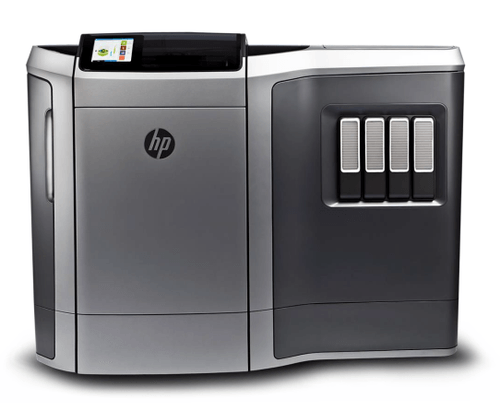We’re reading an interesting post from Jeff Rowe at MCADCafe where he speculates on the future of HP’s 3D printing venture. We agree with many of this points.
HP, if you recall, made a huge splash in 2014 by announcing a new 3D printing process they called “Multi Jet Fusion”. It’s a kind of strange hybrid of binder jetting and laser fusion: binder is selectively added and then fused with high-power lasers.
It sounds like an interesting concept, but the big question is whether the parts created with this process are suitably strong for use in production applications. We don’t know this yet, but we do know that the binder jetting approach alone won’t do it, as the particles are not thermally bonded as they are in some other 3D printing processes, such as 3D Systems’ SLS approach.
HP made a big deal out of how their process could be as much as ten times faster to print objects, but at the time of their 2014 announcement we were quite skeptical. Speeds are often misunderstood by those reading announcements, as they may apply only to certain object geometries or materials. HP wasn’t sufficiently clear.
The second problem is one of time. HP’s announcement was in 2014. It’s now 2016 and we still don’t see any HP 3D printers on the market, with no announcement scheduled or even rumored.
As time passes, competing technologies arise and improve the general 3D printing universe. We’ve seen, for example, multiple new resin 3D printing processes all of which are spectacularly faster than conventional 3D printers.
How will HP’s claimed 2014 speed advantage compare to the machines emerging today? Or even worse, compare to the machines available when they eventually launch their products? As time passes, their speed advantage diminishes.
Where they might succeed, however, is in materials, as it is said HP is spending considerable research time developing materials. For industrial uses, this is the critical element, where the decisions will be made whether to use or not use HP’s solution for given engineering problems.
And for now, we have no idea what HP is cooking up.
Via MCADCafe


